|
Chair's Note
Dear Students, Student Families, Alumni, and Friends of History,
The past year has been one of significant growth and achievements for the History Department. Mercifully, we are bucking a national trend by enjoying an increase in minors and majors! Furthermore, a number of our students have participated in regional and national venues, earning distinction for themselves and representing the best qualities of a Santa Clara education.
Most of all, it is a true pleasure to announce that our historical journal, edited by students and with content entirely created by students, was judged best in the nation! This is a huge achievement, and one for which our department has a fantastic track record. We have been a perennial strong contender for the Nash History Journal Prize, and this year we came out on top once again, showcasing the outstanding hard work and capabilities of our students.
I encourage everyone to learn more about the new faces who have joined us at Santa Clara this year (described below), but I need to also single out a very special one departing soon. Winter quarter will mark the retirement of Nancy Unger, an integral part of our community since 1994. Nancy is a distinguished professor of Progressive-Age America, who has shown a penchant for developing innovative courses and inspiring students to reach their full potential. She served as department chair and for even more years provided an important voice for campus climate and governance. I trust she would not mind me inviting everyone to attend her retirement party, which will take place on Wednesday, April 9 from 4:00-6:00 pm in the Williman Room in Benson Center. It will be a grand bash and we all hope that many friends and alums can join us!
Best wishes,
Matthew Newsom Kerr
|
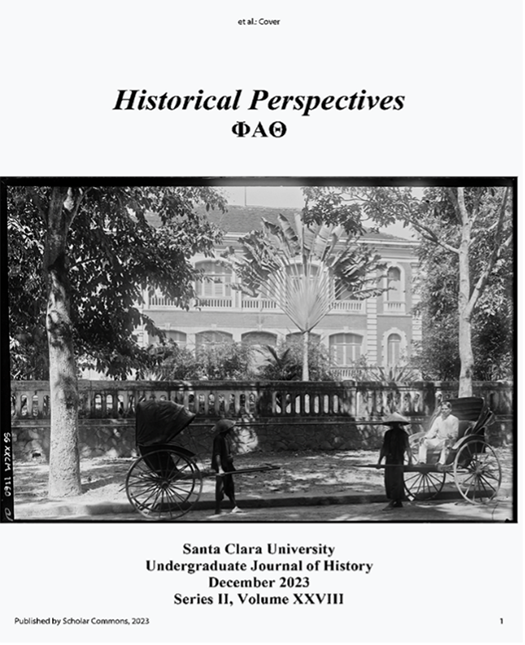 |
Historical Perspectives has once again been awarded first place for the Gerald D. Nash History Journal Prize, sponsored by Phi Alpha Theta (the national history honors association). Congratulations to editors Rosie Huang and Payton Stewart, as well as the journal's faculty advisor Naomi Andrews, office manager Heidi Elmore, and all the excellent student contributors to this outstanding issue.
|
| |
|
|
Key to the growth of our department is our History Club, made up of especially enthusiastic students who maintain an Instagram account and organize a variety of events such as museum trips, Pizza with the Profs, screening and discussion of history-based films, and trivia nights. The Club began last year to hold a pre-registration event each quarter – this is when our Student Ambassadors provide one-on-one peer advising and drum up interest in History courses. Their hard work has considerably boosted enrollments. Generous donations by our alumni and friends make all these enriching History Club activities possible. Thank you!
|
| |
|
|
The prize-winning research and writing by our students continue to impress. These are the recipients of our annual awards, announced at the Senior Celebration last June:
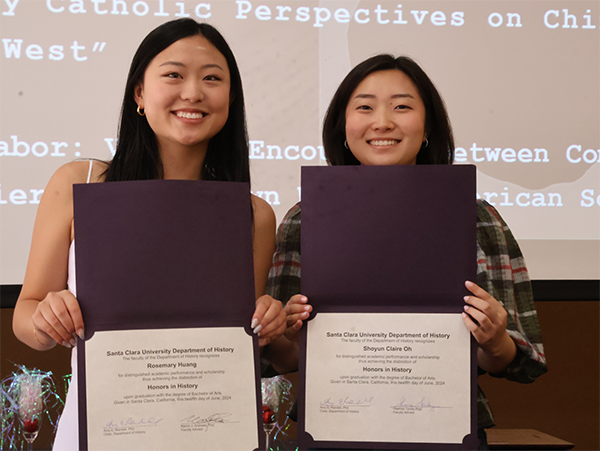
McPhee Prize: established in 2007 through the generosity of Lulu and John McPhee, awarded to the author of the most outstanding paper in a senior seminar. Winner: Rosemary Huang for “‘A Mere Animal Kept for Burden or for Slaughter’: The British Colonial Response to Sati.”
Mehl Prize: given to the student who writes the best senior thesis. Winner: Claire Oh, for “Militarized Sexual Labor: Violent Encounters Between Comfort Women and Japanese Soldiers, and Camptown Women and American Soldiers.”
|
 |
Redwood Prize: established in 1908 by the executive committee of The Redwood, granted to the student who writes the best essay on a historical subject. Winner: Naomi Sneath for “Colonial Education and Its Role in Defining Citizenship.”
|
| |
|
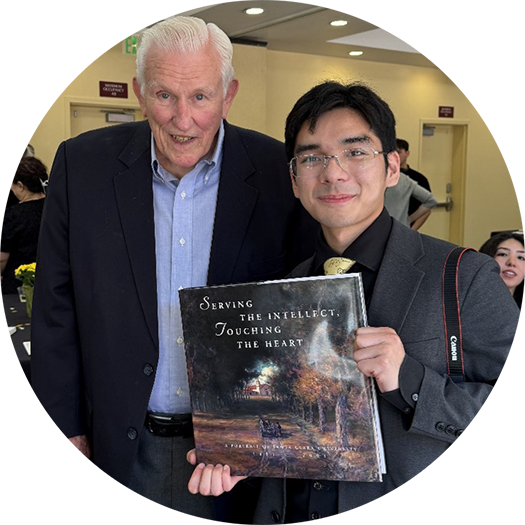 |
Giacomini Prize: awarded to a history major or minor for the best-researched paper based on primary sources. Winner: Dylan Ryu for “Bullets and the Ballot, Valor and the Vote: An Examination of Military Service and Ties to Citizenship in the United States.”
|
|
As is evident from the Chair’s Note, there’s a new sheriff in town! Having assumed the role of Department Chair just as COVID was taking hold, Amy Randall has stepped down after years of particularly dedicated and able leadership. Despite the many extraordinary challenges the pandemic posed on top of the usual myriad of chair’s responsibilities, Amy not only kept our ship afloat, but moving full steam ahead! The department is grateful for her outstanding service. We welcome Matthew Newsom Kerr as Amy’s exceptionably able successor. (If you need a refresher on Matt, Amy paid him a fine tribute in the last newsletter). The History Department is in good hands!
|
|
| |
|
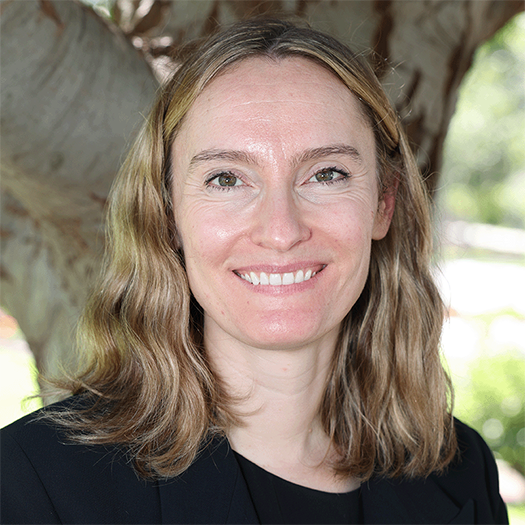 |
Jeannette Estruth
In addition to a new chair, we welcome a new tenure track colleague, Jeannette Estruth, who specializes in American History, with a particular emphasis on the Silicon Valley.
Read more »
|
| |
|
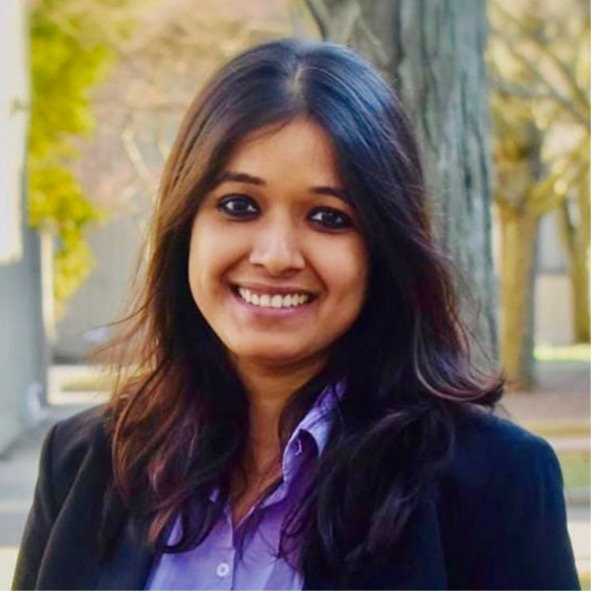 |
Sangita Saha
The department also welcomes a new Lecturer. Sangita Saha! Sangita is a historian of South Asia, whose research focuses on colonialism and decolonization in the region, with particular interests in the histories of women, gender, and sexuality in colonial Bengal.
Read more »
|
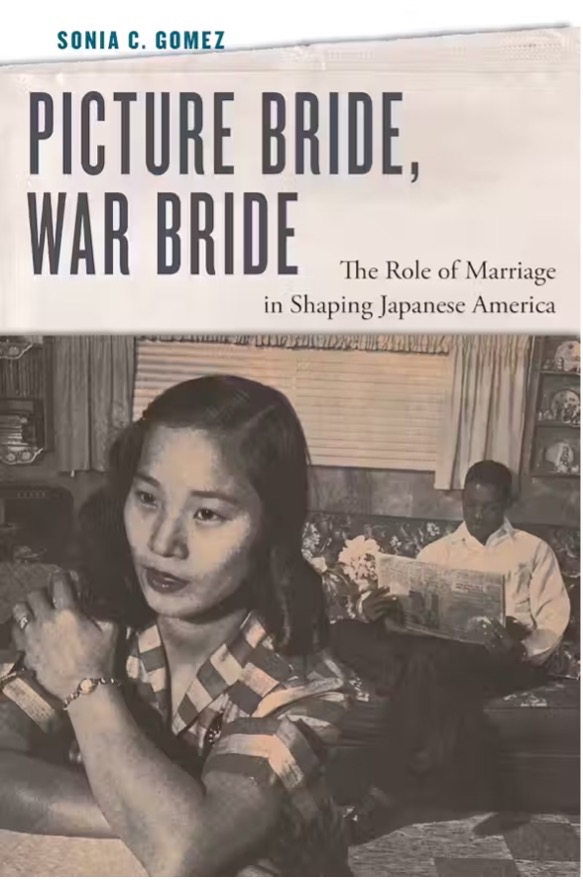 |
Sonia Gomez
Sonia Gomez has a new book! Picture Bride, War Bride: The Role of Marriage in Shaping Japanese America (New York University Press) examines the role marriage played in the lives of Japanese women during periods of racial exclusion in the United States.
Read more »
|
 Sonia, second from right, at the Korematsu Day event. Sonia, second from right, at the Korematsu Day event.
Sonia also participated in a panel discussion of the legacy of Fred Korematsu sponsored by the Office of Multicultural Learning. Joined by California Superior Court Judge of Santa Clara County Johnny Cepeda Gogo, and Santa Clara alum Jordan Tachibana, who serves as Congressional Aide to Rep. Ro Khanna, she discussed the impact of Korematsu v United States (1944) and its relevance to today.
|
| |
|
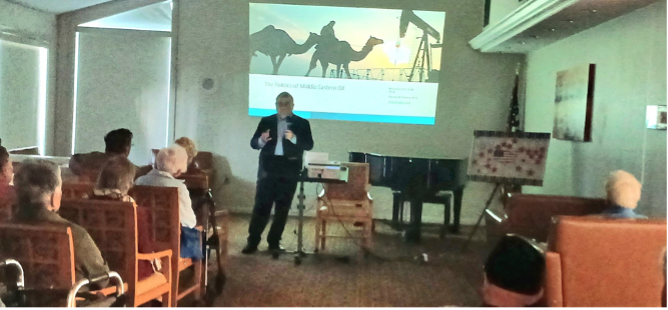
Marwan Daoud Hanania
Marwan Daoud Hanania’s expertise on the Middle East has him much in demand with the public. He lectured twice at the Atria in Willow Glen: “The Politics of Middle Eastern Oil" and "The Role of the United States in the Middle East." He taught a short lecture class, “The Gun and the Olive Branch: Times of War and Peace in Israel and Palestine,” for UC Berkeley’s OLLI program, and gave an intersession seminar entitled "The Crescent's Journey: Exploring Islamic History, 622-1258" to high school students at the Nueva School in San Mateo.
|
| |
|
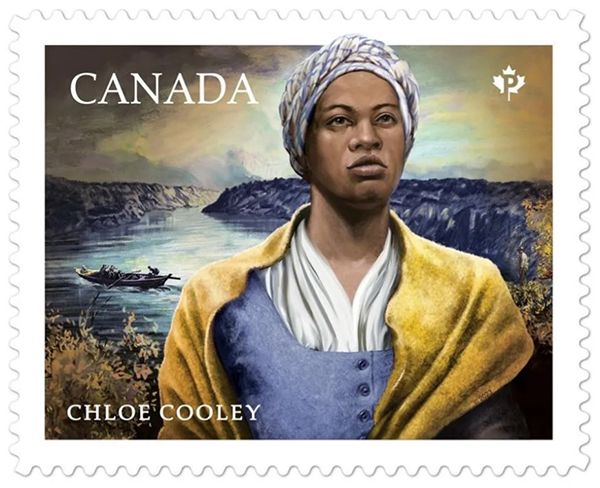 |
Greg Wigmore
Greg Wigmore gave an extremely well-attended presentation “Canadian Slavery, American Freedom: Fugitives, the Boarder, and the State in Early North America,” as part of the lunchtime speaker series in the humanities. He argued compellingly that the most marginalized people on both sides of the new boundary, including Chloe Cooley, featured on the new Canadian postage stamp below, quickly recognized its significance, exploiting political and diplomatic tensions to seize their freedom.
|
| |
|
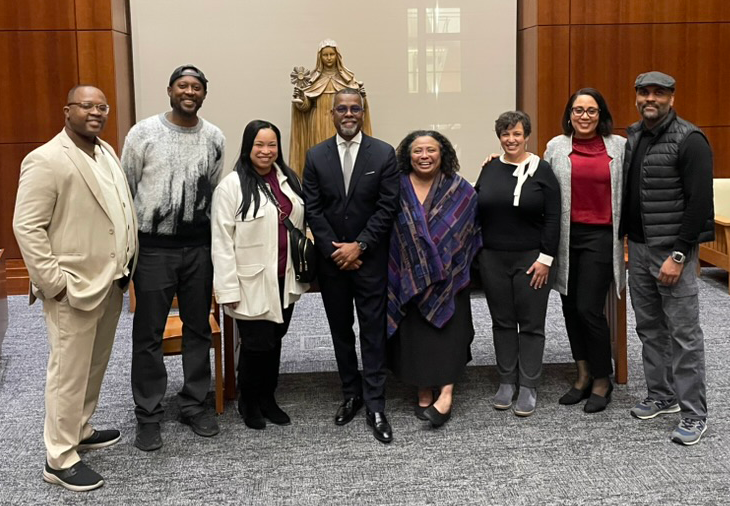 The Department’s Harry Odamtten on the far left, Eddie Glaude in the center. The Department’s Harry Odamtten on the far left, Eddie Glaude in the center.
Harry Odamtten
Harry Odamtten, director of the Black Justice Studies Collaborative (BJSC), hosted the organization’s Inaugural Speaking Event. Dr. Eddie S. Glaude, the James S. McDonald Distinguished University Professor of African American Studies at Princeton University, gave a dynamic presentation to a packed St. Clare Room. Dr. Glaude discussed the “two Americas” that were coming together at the convergence of Martin Luther King Jr. Day celebrations and the presidential inauguration, and he made an impassioned plea for the values of love and service.
Harry also published this review essay: “Ray Kea and the Historians of the Gold Coast: Debates Over Continuity and Rupture in African and African Diaspora Atlantic Histories,” in the prestigious Journal of History.
|
| |
|
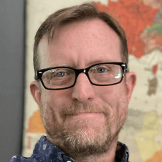 |
Matthew Newsom Kerr
Matthew Newsom Kerr presented at the bi-annual conference of the Society for the Social History of Medicine in Glasgow, Scotland in July. His paper was titled: “‘If ever a town deserved retribution’: The Gloucester Smallpox Epidemic of 1896.”
|
| |
|
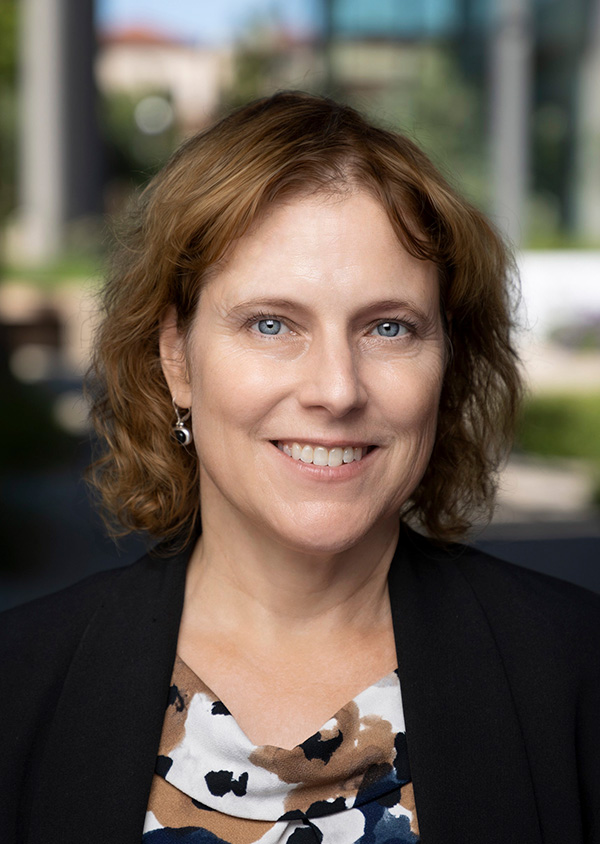 |
Amy Randall
Amy Randall was honored to be invited to teach a session on Gender and Genocide for the Genocide and Human Rights University Program organized by the University of Toronto's Zoryan's Institute, an academic center dedicated to the causes of scholarship and public awareness about universal human rights, genocide, and diaspora-homeland relations. This two-week summer program is for graduate students from all over the world who are emerging scholars in genocide and human rights studies.
|
| |
|
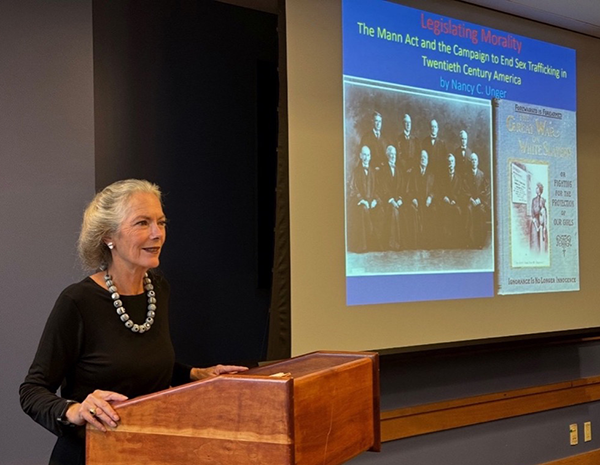 Nancy presenting her research at Columbia University. Nancy presenting her research at Columbia University.
Nancy C. Unger
Nancy C. Unger had a busy fall providing historical context during the presidential election, including this article for TIME, and a 12-minute interview with Kai Ryssdal on the NPR “Marketplace” program concerning the dangers of Donald Trump’s Schedule F plan for the federal workforce. She also gave a talk, "Legislating Morality: The Mann Act and the Campaign to End Sex Trafficking in Twentieth-Century America," at Columbia University as part of its Law and Politics seminar series. Nancy was also the proud co-winner of the Louis and Dorina Brutocao Award for Teaching Excellence.
|
| |
|
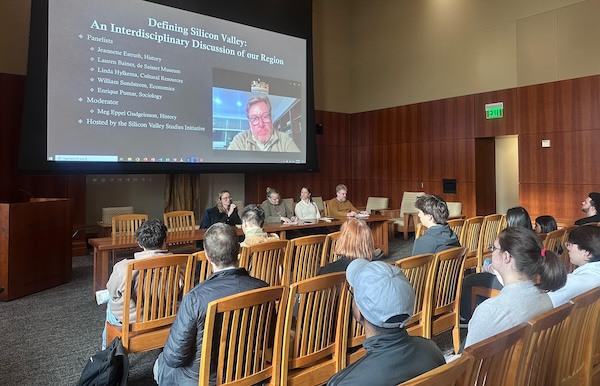
Meg Eppel Gudgeirsson
Meg Eppel Gudgeirsson and Jeannette Estruth participated in the panel “Defining Silicon Valley: An Interdisciplinary Discussion of our Region” hosted by the Silicon Valley Studies Initiative. The Initiative was established in 2024 and led by the History Department. Meg, the Initiative’s director, moderated the conversation while Jeannette served as a panelist, showcasing her deep historical knowledge of the Valley. Jeannette also presented two papers in New York at the annual meeting of the American Historical Association: "Social Media for Historians: How We Got Here and What We Do with It Now," and "The Galactic Commons, 1982 to 1989: Technology as Politics by Other Means in the 1980s United States."
|
| |
|
Mateo Carrillo
Mateo Carrillo’s article, "The Communal Roots of Mexico's Maquila Industry: Urbanization, Land, and Inequality in Ciudad Juárez, 1960-2000" was published in the Latin American Research Review.
|
| |
|
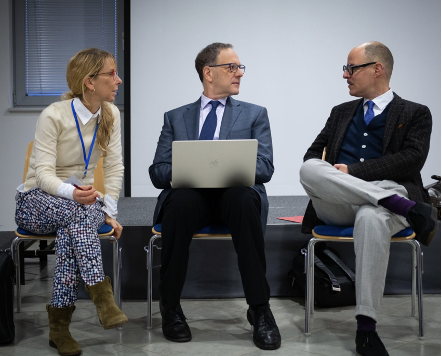 Matthew Specter, center, in Geisa, Germany. Matthew Specter, center, in Geisa, Germany. |
Matthew Specter
In December, Matthew Specter presented at a conference on "Borders, Law and the World" with an international group of scholars at the Point Alpha Research Institute in Germany; co-organized a workshop on "Peace Theory in Light of Ever-New Wars" at Goethe University, Frankfurt, with Hendrik Simon and Lothar Brock; and in January, he was interviewed about his 2022 book, The Atlantic Realists (Stanford UP) on the German politics podcast, Spassbremse ("buzz-kill"), now available on Apple and Spotify.
|
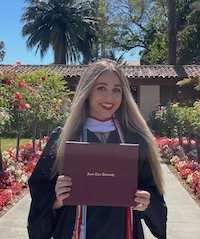 |
“My name is Lili Tavlan '22 (English, History) and I’m working as a screenwriter for a movie development producer. The opportunity quite literally fell into my lap, and I’ve worked my way from intern to writer with the help of some skills that Santa Clara cultivated in me. As a History major, we learned how to access both physical and virtual archives, critically evaluate sensitive information, derive connections and draw conclusions from seemingly mundane facts— and, honestly, most importantly, how to read crazy cursive handwriting in old documents. As an English major, we learned the importance of meeting essay deadlines, the necessary subtlety needed for reading into a text, and that revision is, perhaps, the most crucial part of writing. All of this has proved wildly important, and I hope to continue using and refining these skills!”.
|
|
Alumni!!! Please send us an update for the “Alumni” section of this newsletter. Let us hear from you and learn what you’re up to. We’d also love to learn any special memories you have of your time in the History Department—such as a story about a memorable class, professor, staff member, or classmate. Please submit to Heidi Elmore at helmore@scu.edu
|
THANK YOU FOR YOUR SUPPORT!!
Your gifts make possible many student opportunities!
|
|
|

